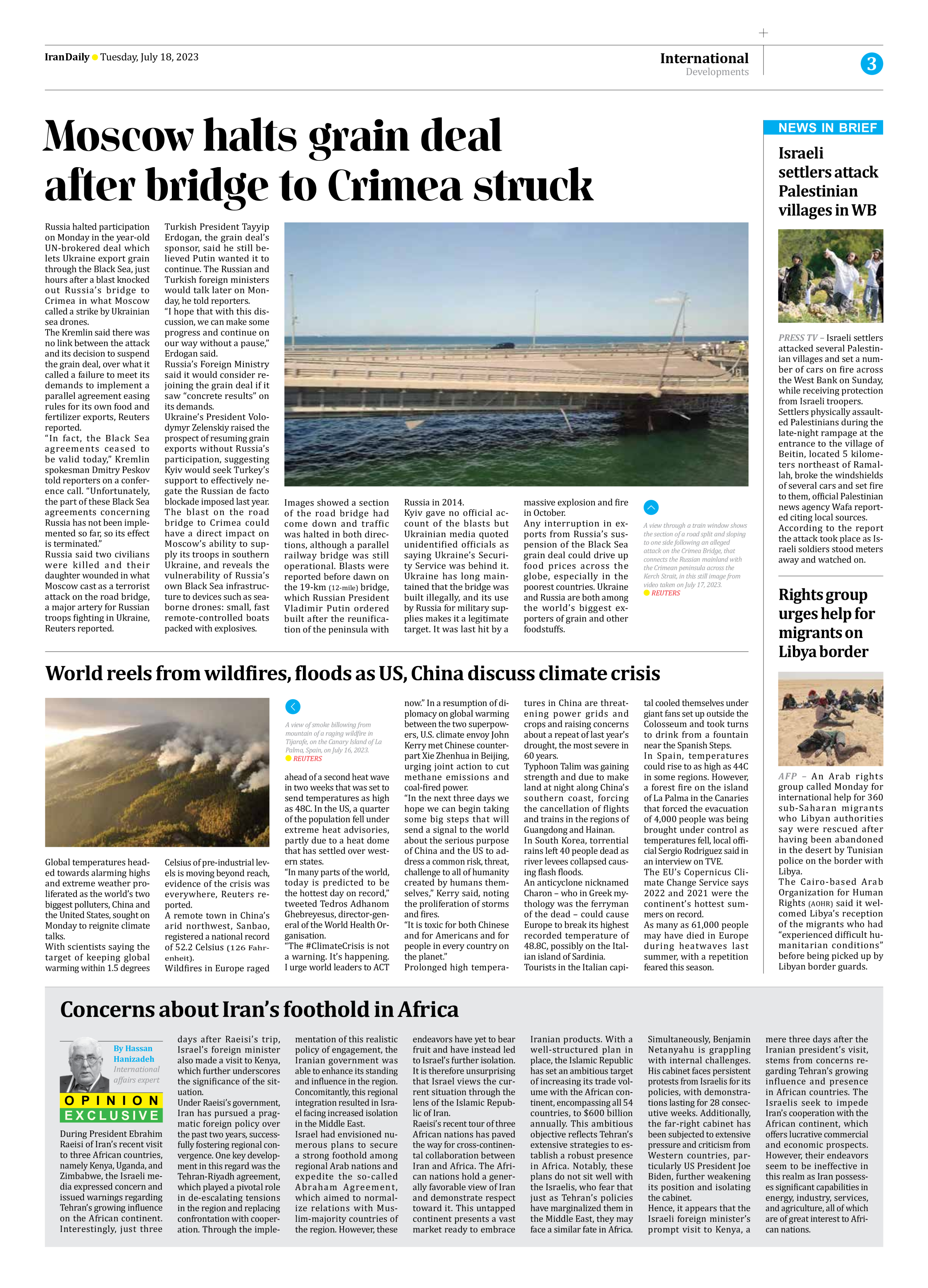
Concerns about Iran’s foothold in Africa
By Hassan Hanizadeh
International affairs expert
During President Ebrahim Raeisi of Iran’s recent visit to three African countries, namely Kenya, Uganda, and Zimbabwe, the Israeli media expressed concern and issued warnings regarding Tehran’s growing influence on the African continent. Interestingly, just three days after Raeisi’s trip, Israel’s foreign minister also made a visit to Kenya, which further underscores the significance of the situation.
Under Raeisi’s government, Iran has pursued a pragmatic foreign policy over the past two years, successfully fostering regional convergence. One key development in this regard was the Tehran-Riyadh agreement, which played a pivotal role in de-escalating tensions in the region and replacing confrontation with cooperation. Through the implementation of this realistic policy of engagement, the Iranian government was able to enhance its standing and influence in the region. Concomitantly, this regional integration resulted in Israel facing increased isolation in the Middle East.
Israel had envisioned numerous plans to secure a strong foothold among regional Arab nations and expedite the so-called Abraham Agreement, which aimed to normalize relations with Muslim-majority countries of the region. However, these endeavors have yet to bear fruit and have instead led to Israel’s further isolation. It is therefore unsurprising that Israel views the current situation through the lens of the Islamic Republic of Iran.
Raeisi’s recent tour of three African nations has paved the way for cross-continental collaboration between Iran and Africa. The African nations hold a generally favorable view of Iran and demonstrate respect toward it. This untapped continent presents a vast market ready to embrace Iranian products. With a well-structured plan in place, the Islamic Republic has set an ambitious target of increasing its trade volume with the African continent, encompassing all 54 countries, to $600 billion annually. This ambitious objective reflects Tehran’s extensive strategies to establish a robust presence in Africa. Notably, these plans do not sit well with the Israelis, who fear that just as Tehran’s policies have marginalized them in the Middle East, they may face a similar fate in Africa.
Simultaneously, Benjamin Netanyahu is grappling with internal challenges. His cabinet faces persistent protests from Israelis for its policies, with demonstrations lasting for 28 consecutive weeks. Additionally, the far-right cabinet has been subjected to extensive pressure and criticism from Western countries, particularly US President Joe Biden, further weakening its position and isolating the cabinet.
Hence, it appears that the Israeli foreign minister’s prompt visit to Kenya, a mere three days after the Iranian president’s visit, stems from concerns regarding Tehran’s growing influence and presence in African countries. The Israelis seek to impede Iran’s cooperation with the African continent, which offers lucrative commercial and economic prospects. However, their endeavors seem to be ineffective in this realm as Iran possesses significant capabilities in energy, industry, services, and agriculture, all of which are of great interest to African nations.







